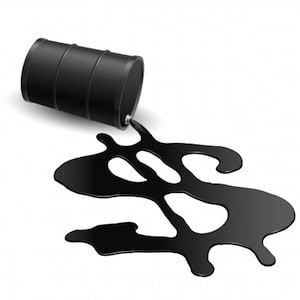Tom Donohue, the president of the massive business lobbying group the U.S. Chamber of Commerce, is once again doing the bidding of the dirty energy industry by claiming that America is on the verge of complete “energy security.”
On the pages of the U.S. Chamber’s Free Enterprise website, Donohue claimed that America has become an “energy rich” nation, no longer susceptible to problems like the gas shortage of the 1970’s. In Donohue’s own words:
We’re sitting on a 200-year supply of oil and have enough natural gas to last us 115 years. And we’re discovering more resources every day. Thanks to new technology, entrepreneurship, and access to private lands, we’re able to develop more of it than ever—particularly the unconventional oil and gas, which was previously too costly to reach…
…Our national energy policy is still based on the false assumption that we are an energy-poor nation. The federal government continues to keep 87% of federal lands off limits for energy development. Our affordable and abundant coal resources are under constant regulatory threat by EPA. The administration is proposing new regulations on shale energy development, even though it is already stringently regulated at the state level. And some in the government still want to pick winners and losers among energy industries.
Donohue would have us believe that the United States is sitting on vast energy reserves that would quench our dirty energy addiction for centuries, but the pesky federal government is trying to keep those honest energy companies down.
This is the same government that, a few paragraphs earlier Donohue inadvertently admitted, had allowed increased oil and gas drilling in the United States and reduced our need for imports:
A recent report by the U.S. Chamber’s Institute for 21st Century Energy found that increased oil and gas production has lowered U.S. energy security risks. It has helped drive down our petroleum imports from 60% of consumption to 35% in less than a decade.
Donohue is correct about the fact that domestic energy production is soaring, but he ignores the fact that this increase is directly attributable to the decision by the federal government to permit increased drilling on federally protected lands.
The heart of Donohue’s argument is that the U.S. is floating on countless barrels worth of dirty energy, and we need to get drilling. Technically, Donohue isn’t wrong. The industry funded Institute for Energy Research has estimated that there are more than a trillion barrels worth of dirty energy beneath U.S. soil and water, a talking point that has been endlessly parroted on both Fox News and CNBC.
But here is what Donohue doesn’t want the public to know: Those trillions of barrels are not economically recoverable. To put it simply, it would cost more to extract the energy (in most cases shale oil) than the drillers could possibly sell it for on the market. It’s like finding fertile farm land on the moon – sure, it’s there, but it doesn’t do us any good.
The U.S. Chamber likes to masquerade as an organization that is concerned about “small businesses,” the group is little more than an extension of the interests of big business, particularly the dirty energy industry. On issues across the board, the Chamber has fought for the interests of oil, coal, and natural gas producers. It is worth noting that representatives from Exxon, BP, Chevron, Massey Energy, and Shell help fund the Chamber’s activities, according to Think Progress.
In the 2010 U.S. midterm elections, the U.S. Chamber spent more than $75 million to unseat members of Congress who were deemed “unfriendly” to the oil and gas industries.
Most recently, the U.S. Chamber filed an amicus brief on behalf of the dirty energy industry arguing that a court decision forcing the dirty energy industry to disclose the payments that they receive from foreign governments would make them less competitive. In reality, it would let the public know that the lobbying and campaign donations being thrown out by the industry are coming from other countries.
Additionally, the Chamber has helped defend dirty energy companies like Chevron, Exxon, Citgo, BP, and Duke Energy when they were facing lawsuits over environmental damage.
The U.S. Chamber is in the tank for the dirty energy industry, and Donohue’s insistence that the United States government is hindering our quest for unnecessary oil is clear proof of that.
Image credit: dvarg / 123RF Stock Photo
Subscribe to our newsletter
Stay up to date with DeSmog news and alerts






